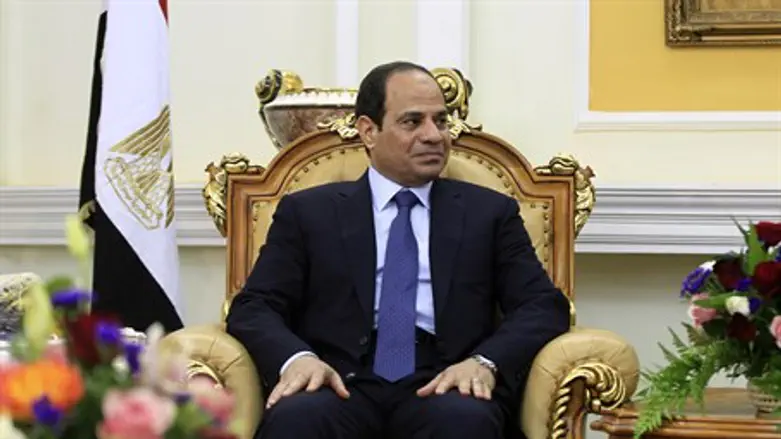
Egyptian President Abdel Fattah al-Sisi blamed Israel for fueling terrorism in the Middle East by not making peace with the Palestinian Authority (PA) on Wednesday, in light of the tensions between the West and the Islamic State (IS, formerly ISIS).
The lack of a "peace process" in Israel contributes to a "fertile environment for the growth and spread of extremism, violence and terrorism," claimed Sisi, who violently overthrew former President Mohammed Morsi last July 3.
"What strengthens this environment, and gives excuses to those who exploit religion and terrorism, is the continuation of the Palestinian cause for decades without an equitable resolution," his office quoted him as saying in a statement, reports AFP.
Sisi has been critical towards Israel, despite serving as mediator between the Jewish state and the terrorist organization Hamas in negotiations that led to a ceasefire deal last Tuesday. It is worth noting that during elections in May, he said he would be open to amending the peace treaty with Israel.
Just this Monday, two days before his most recent denouncement of the lack of "peace," Sisi slammed Israel's plans to declare 4,000 dunams (988 acres) of empty unclaimed land in Judea, mostly in Gush Etzion, as state land.
"This is not a positive step - it contradicts international law and will have negative consequences on the peace process," a Foreign Ministry statement in Cairo said, according to AFP.
In this context, it is worth noting that the 2012 Levy Report, which the Israeli government has yet to adopt, clearly demonstrated that an Israeli presence in Judea and Samaria is in no way illegal under international law.
While Sisi blamed Israel for not giving an "equitable resolution," the stance appears not to be gaining his state immunity from Hamas terrorism.
Senior Sinai security sources revealed that a blast on Tuesday that killed 11 Egyptian soldiers near the Rafah Crossing to Gaza was caused by an explosive planted in a tunnel under the city square. The reported cause of the incident, if true, may constitute the first "terror tunnel" attack on Egypt from Gaza.
